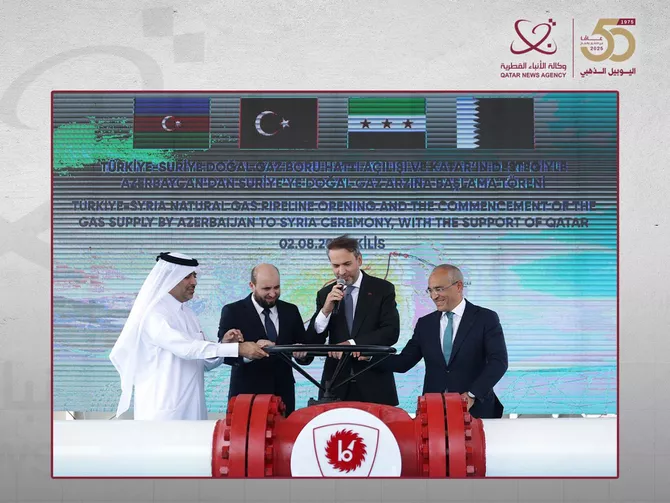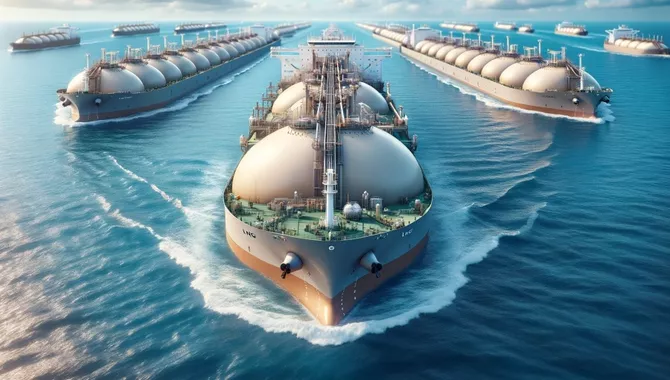
On August 2, Azerbaijan began supplying natural gas to Syria via Türkiye. This event marks not just a technical shift in energy flows but a deeply symbolic moment in the geopolitics of the Middle East. For the first time, Azerbaijani gas is being directed toward the region, and the implications are far-reaching-especially for Syria, which is seeking to rebuild after years of devastating civil war.
Syria’s new leadership is sending a clear message: they are here to stay. By restoring basic infrastructure-most importantly the energy sector-they aim to demonstrate competence, regain the trust of the population, and establish legitimacy on the international stage. A functioning power grid is the foundation of any society, and in Syria, gas is the key to making it work again.
Before the war, Syria wasn’t a major energy player, but it was self-sufficient. Gas- and fuel oil-fired power plants met domestic demand. That reality was shattered during the conflict. Pipelines were destroyed, infrastructure looted or bombed, and production plummeted. Today, restoring that network is impossible in the short term. Importing gas is the only practical solution-and Azerbaijan is stepping in to fill that void.

Why Azerbaijan? Because options are few. Türkiye is a net importer, not a producer. Iran, although geographically close, is politically estranged from the new Syrian authorities. That leaves Azerbaijan as the only politically and logistically viable source.
The likely mechanism is straightforward: Azerbaijani gas reaches Türkiye, is bought by Turkish companies or intermediaries, and then forwarded to Syria. Türkiye’s interest here is obvious-it wants a stable neighbor to the south. Politically, Ankara is seeking influence in postwar Syria. Economically, even selling gas at cost serves Türkiye’s long-term regional strategy.

This gas deal is more than just energy-it’s psychological. Reliable electricity means schools can reopen, hospitals can function, and businesses can operate. It is a tangible sign that normal life is returning. It also opens the door for foreign investment and industrial recovery. Without power, none of this is possible.
Of course, Syria’s long-term goal must be to regain energy independence. But that will take years. In the meantime, Azerbaijani gas is a lifeline.
There is, however, another question looming in the background: could Russian gas follow the same path?
Technically, the idea is not implausible. Russia already delivers gas to Türkiye via Blue Stream and TurkStream. Could that gas then be rerouted through Azerbaijan-or even via Turkish intermediaries-to Syria? In theory, yes. In practice, not so fast.
First, economics matter. The route would be long-Russia to Azerbaijan to Georgia to Türkiye to Syria. Every step adds cost. Then there’s the issue of payment. Syria is not a solvent buyer. Any initial arrangements would likely rely on barter-perhaps crude oil in exchange for gas. But Russia has little interest in Syrian oil, and extending credit is not in Moscow’s interest under current economic constraints.
Second, politics matter even more. Russia is approaching Syria’s new government cautiously. There is institutional memory in Moscow of past betrayals, radicalism, and instability. Türkiye, by contrast, is taking the lead in engaging with Damascus. For now, Russia is watching-and waiting.
There is a hypothetical workaround: Turkish companies could buy Russian gas and sell it to Syria. This would shield Russia from direct political risk. But again, the economics must make sense. Blue Stream is underutilized and could technically handle more volume. But unless someone pays full price-likely not Syria-such deals remain unlikely.
There’s also talk of Russian LNG going to Syria. That’s even more far-fetched. Syria has no LNG terminal, and while floating regasification units (FSRUs) could be leased, doing so would require time, money, and political coordination. Moreover, Russian LNG from Yamal or Sakhalin is already spoken for on the global market. Syria can’t afford market prices-and offering discounts would violate Western sanctions and invite reputational risks.

Photo credit: bne IntelliNews
In this context, Azerbaijan’s advantage becomes even clearer. Baku is not just providing gas; it’s seizing a strategic opportunity. By supplying Syria via Türkiye, Azerbaijan enhances its role as a regional energy hub and deepens ties with both Ankara and Damascus. This move fits into a broader strategy: expanding gas production, targeting new markets, and building infrastructure that serves its own long-term interests.
Critically, Azerbaijan is unlikely to welcome Russian gas into its pipelines-especially for transit to Europe or the Middle East. Baku and Moscow are competitors in the gas market. Any use of Azerbaijani infrastructure by Russian exporters would dilute Azerbaijan’s influence, depress market prices, and complicate its relationships with European buyers.
The prospect of a four-way energy alliance-Russia, Azerbaijan, Türkiye, and Syria-sounds compelling on paper. In reality, it’s highly unlikely. Each player has divergent interests, economic constraints, and geopolitical goals. Türkiye is the only one with working ties to all three. Russia and Azerbaijan cooperate selectively, but not in a way that supports shared pipeline usage. Syria remains an unstable partner.
In conclusion, Azerbaijan’s gas deal with Syria is a smart, strategic move that strengthens its role in the region. Russia, meanwhile, will continue to dominate Türkiye’s gas market but is unlikely to enter the Syrian equation any time soon. The global gas game is evolving-but for now, Baku is playing its hand better than most.
Share on social media